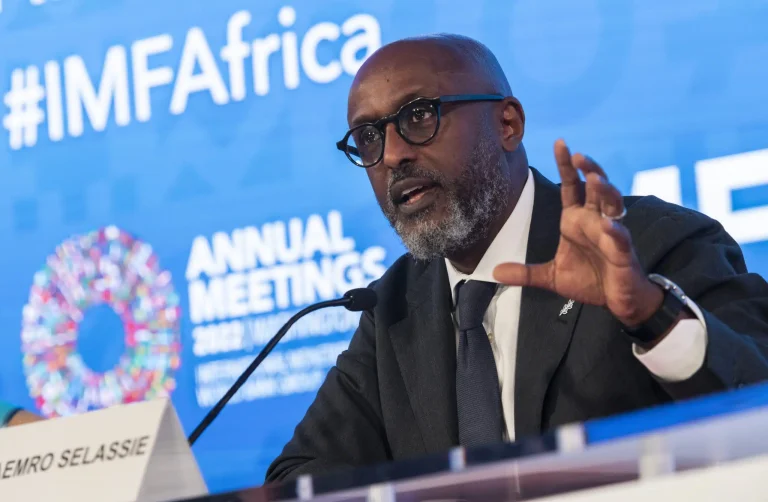🎧 Listen to This Article
The IMF’s April 2025 Regional Economic Outlook, titled “Recovery Interrupted”, highlights that Sub‑Saharan Africa’s fragile rebound is under renewed threat from elevated global borrowing costs, retreating external demand, and declining commodity prices, with a growth forecast trimmed to 3.8% for 2025. Simultaneously, under its IMF Extended Credit Facility program, Togo has made significant strides but must tighten fiscal discipline to sustain progress amid rising debt costs and global uncertainty.
Key Insights from IMF Report
Global and Regional Risks
- The IMF flags the recovery in the region has been “overtaken by recent events”—a turnaround influenced by tightening conditions in advanced economies, commodity price drops, and heightened geopolitical uncertainty.
- Growth is revised downward to 3.8% in 2025 (from 4.0% in 2024 and 4.2% previously projected), driven by weaker external demand and financial strain .
- Although average debt-to-GDP remains under 60%, rising financing costs and exchange-rate pressure pose significant macroeconomic risks.
Policy Recommendations for SSA
The IMF advocates three priority actions:
- Reduce macroeconomic vulnerabilities (e.g., debt and inflation), while maintaining social and political acceptability.
- Adjust policies to reflect macro imbalances, ensuring flexibility under fiscal constraints.
- Mobilize domestic revenues and improve public spending efficiency to reduce dependency on external financing.
🇹🇬 Togo: Strong Outcomes Amid IMF Program
- Growth reached 5.3% in 2024, inflation moderated to 2.8% by February 2025, and the government completed the second review of its IMF ECF.
- A staff-level agreement enables a $58M ECF disbursement, contingent on executive board approval.
- Despite meeting most IMF targets, Togo missed one fiscal balance criterion due to emergency flood relief and fertilizer subsidies—but published detailed budget explanations to enhance transparency.
- Structural progress includes recapitalizing a public bank and strengthening procurement transparency.
Strategic Implications for MNEs & Tax Authorities
| Challenge | Strategic Response |
|---|---|
| External Funding Crunch | Prioritize revenue mobilization—including tax reform and compliance—while improving efficiency in spending. |
| Debt Vulnerability | Develop risk scenarios; structure debt to mitigate rollover risk; monitor currency pressures. |
| Tariff & Trade Shift | MNEs should evaluate supply chains and market exposure in light of shifting export demand and financing costs. |
| Fiscal Transparency | Clients should welcome Togo’s new budget disclosure standards—key for international investor confidence and ESG alignment. |
Recommendations
- Reform tax base & collection: Support governments in strengthening domestic revenue—especially VAT, corporate and property taxes—to reduce foreign financing need.
- Enhance fiscal transparency: Promote standardized disclosure practices for budgeting and public debt in line with IMF’s new norms.
- Program-based advisory: Offer structured finance and debt sustainability advice customized for ECF participating countries, supplementing IMF-led reforms.
- Integration of ESG & Inclusion: Recommend social investment targeting vulnerable populations alongside fiscal consolidation to ensure sustainable development outcomes.
For further details, clarification, contributions, or any concerns regarding this article, please get in touch with us at editorial@tax.news. We value your feedback and are committed to providing accurate and timely information. Please note that our privacy policy will handle all inquiries.



